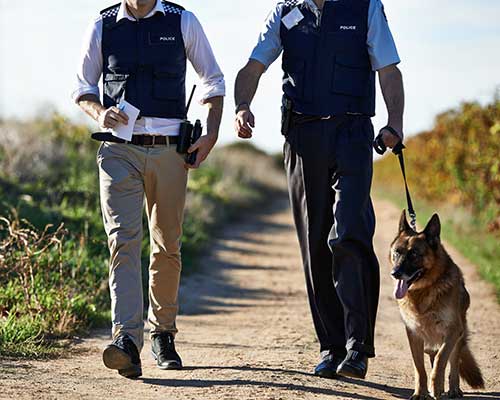In many criminal cases, search and seizures play a large role when reviewing evidence and details. These laws are derived from the constitution and dictated by the Fourth Amendment in the United States. The Fourth Amendment protects citizens’ privacy by preventing unreasonable searches from law enforcement during an arrest. As criminal defense attorneys in Florida, this is a critical area that we must understand fully to better defend our clients.
The Fourth Amendment: Your Protection Against Unreasonable Searches
The Fourth Amendment states that people have the right to be free from unreasonable searches of themselves, their homes, writings, or other personal property. This means that police are required to get a warrant. This warrant must be accompanied by probable cause, to conduct any search or seize any property. However, there are several situations where a warrant is not required including:
- Consent Searches
- This happens when you willingly allow the police to search your house. If you give consent, they don’t have to present a warrant to go through your possessions. It is important to know, without a warrant, you have the right to refuse consent.
- Plain View Doctrine
- An officer can also make a warrantless seizure of evidence if he/she is lawfully at the scene and the contraband or evidence is within the police officer’s line of sight.
- Search Incident to Arrest
- The police force is allowed to search the person and the vicinity in an attempt to retrieve weapons or other possible pieces of evidence after a legal arrest has been made.
- Exigent Circumstances
- There are some cases where police officers may conduct a search without a warrant. For example, during emergency situations like preventing a suspect from destroying some evidence or when the suspect is escaping.
- Automobile Exception
- Given the mobile nature of vehicles, if the police have reasonable suspicion that a car contains evidence, they are allowed to search the car without a warrant.
What Constitutes Probable Cause?
Probable cause is a reasonable belief, based on factual evidence, that a specific crime has been committed in the past, is being committed presently or will be in the future. This standard is higher than ‘reasonable suspicion.’ Suspicion is enough to justify short-term detention, stops and frisks but not arrests or full searches.
Challenging Illegal Searches and Seizures
If you believe your constitutional rights have been infringed on during a search or seizure, it is important to get in touch with criminal defense attorneys. If an officer performs an unlawful search, then it is likely that the evidence, or even the entire case, can be thrown out / inadmissible in court.
Real-World Examples
Consider the case of State v. Butler, where the Florida Supreme Court ruled that evidence obtained from a home without a warrant or exigent circumstances was inadmissible. This case underscores the importance of the warrant requirement and the protection of home privacy.
In another instance, the U.S. Supreme Court decision in Riley v. California established that police need a warrant to search a cell phone seized during an arrest, recognizing the vast amounts of personal information stored on modern devices.
Criminal Defense Attorneys Here to Help
Laws concerning search and seizure remain a basic but intricate piece in safeguarding people’s rights against State interference. Our team of expert attorneys have handled many cases for search and seizure. They’re ready to help review the details of your case. Or, answer any questions you may have. Contact our team at 905-355-6777.